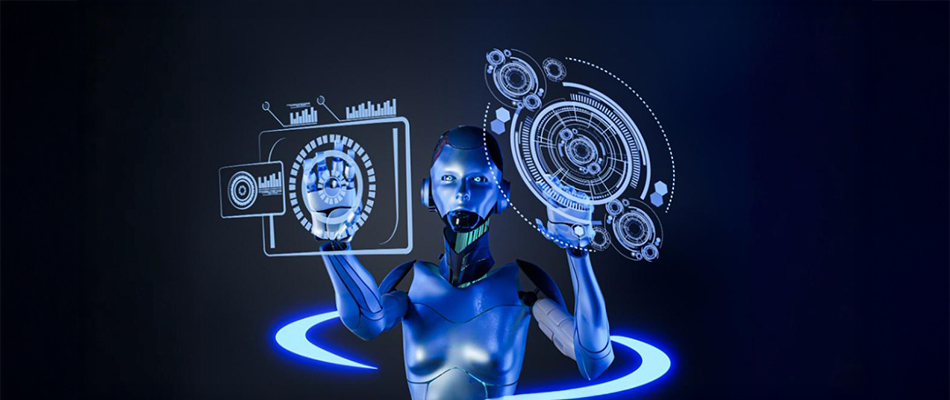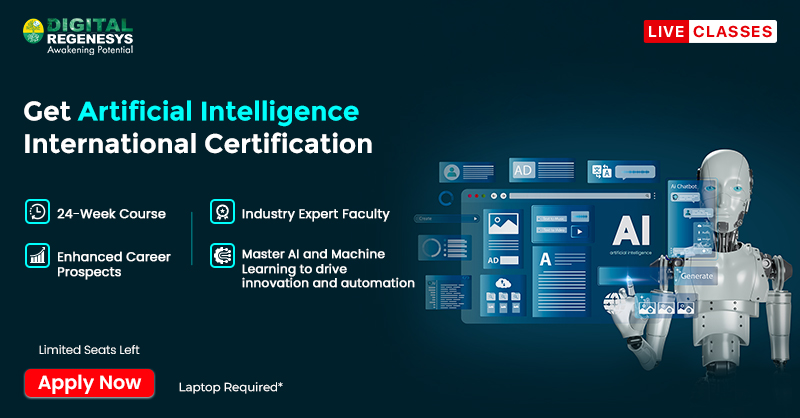AI and Machine Learning Course

Artificial Intelligence (AI) and Machine Learning (ML) are at the heart of today’s technological progress. From more intelligent recommendations on streaming platforms to advanced medical diagnostics, these technologies are changing how industries operate.
For learners and professionals, understanding AI and ML is becoming a necessity to stay relevant in the workplace.
In this article, we will discuss what an AI and Machine Learning course covers, its benefits, skills gained, career prospects, and why structured learning is better than self-study.
By exploring these aspects, readers will gain clarity on how such a course can provide the right balance of theory and practical exposure to succeed in the field of AI.
What an AI and Machine Learning Course Covers
An AI and Machine Learning course introduces learners to the essential building blocks of these technologies. It ensures that students not only understand the concepts but also know how to apply them in solving real-world problems. A strong curriculum strikes a balance between programming knowledge, mathematical understanding, and application-based learning.
Therefore, learners in such a course usually encounter a mix of foundational and advanced topics that cover the following-
- Fundamentals of AI and ML- Introduction to algorithms, supervised and unsupervised learning, and use cases.
- Programming Skills- Python, R, and ML libraries like TensorFlow, scikit-learn, and PyTorch.
- Data Handling- Techniques for preprocessing, cleaning, and structuring raw datasets.
- Model Training and Evaluation- Building, testing, and validating predictive models.
- AI Ethics- Understanding fairness, bias, and responsible AI practices.
Get insights on Why do Companies Value Employees with Artificial Intelligence Course Certificates?

Benefits of Taking an AI and Machine Learning Course
Learning AI and ML through a structured course offers more than theoretical exposure. It equips learners with in-demand skills, practical experience, and industry insights that help in career advancement.
Whether you are a student looking to enter the job market or a professional seeking to upgrade your skills, such a course adds value.
Therefore, taking an AI and ML course can provide the following benefits-
- Skill Development- Acquire technical, analytical, and problem-solving abilities.
- Career Growth- Access opportunities in AI, ML, and data-driven roles.
- Practical Exposure- Learn through case studies, projects, and simulations.
- Cross-Industry Relevance- Apply knowledge in finance, healthcare, manufacturing, and retail.
- Professional Recognition- Gain a credential that signals expertise to employers.
Career Opportunities After Completing the Course
AI and ML are among the fastest-growing areas in the job market, creating demand for professionals who can apply these skills effectively. Completing a dedicated course increases employability by bridging the gap between theoretical knowledge and hands-on application. Learners become well-prepared to step into roles that require analytical thinking and technical execution.
Therefore, career opportunities after completing such a course include-
- Machine Learning Engineer- Designs, builds, and deploys ML models at scale.
- Data Scientist- Interprets data, builds predictive models, and generates insights.
- AI Researcher- Works on advancing AI technologies through experiments.
- Business Analyst- Uses AI-powered tools to enhance decision-making processes.
- AI Consultant- Helps organisations identify and adopt AI solutions.
Discover information on The Impact Of AI On The Job Market And The Future Of Work.
Skills Gained Through an AI and Machine Learning Course
A well-designed AI and ML course focuses on both technical and soft skills. Learners acquire programming and data skills, but they also learn how to apply critical thinking, creativity, and communication in real-world settings. This ensures they can work in multidisciplinary teams and present findings clearly.
Therefore, completing such a course equips learners with skills such as-
- Programming Expertise- Python, R, TensorFlow, PyTorch, and other frameworks.
- Mathematics and Statistics- Probability, linear algebra, and statistical modelling.
- Data Analysis- Cleaning, visualising, and interpreting data sets effectively.
- Model Deployment- Using cloud platforms to put AI models into practice.
- Communication- Explaining technical ideas to non-technical stakeholders.
Learn Why Lifelong Learning is Crucial in the Artificial Intelligence Course Landscape?
Why Choose a Structured Course Over Self-Study?
While free resources and tutorials are widely available online, they often lack structure and real-world alignment. A structured course provides a clear learning path, industry-standard tools, and guidance from experts. Learners also benefit from peer interactions and feedback, which enhance the overall experience.
Therefore, choosing a structured course has advantages such as-
- Guided Learning- Learn with mentorship and instructor support.
- Comprehensive Curriculum- Covers both fundamentals and advanced topics systematically.
- Hands-On Projects- Gain practical exposure through assignments and labs.
- Networking Opportunities- Build connections with peers and professionals.
- Certification- Earn a recognised credential valued by employers.
Who Should Enrol in an AI and Machine Learning Course?
An AI and ML course is designed to be inclusive, attracting learners from varied backgrounds. While coding experience can be helpful, many beginner-friendly courses offer foundational support. The emphasis is on preparing learners for a broad spectrum of applications.
Therefore, this type of course is suitable for-
- Students- Looking to enter careers in AI, ML, or data science.
- Professionals- Upskilling to stay competitive in their current roles.
- Entrepreneurs- Exploring how AI can improve products or services.
- Researchers- Gaining deeper insights into algorithmic approaches.
- Career Changers- Moving into technology from other domains.
Industry Applications of AI and Machine Learning
AI and ML are applied across multiple industries, solving problems that range from customer experience to predictive maintenance. A course helps learners understand these applications and prepares them to design tailored solutions.
Therefore, the knowledge gained from such a course applies in areas such as-
- Healthcare- Diagnosing diseases, personalised treatment, and drug discovery.
- Finance- Fraud detection, algorithmic trading, and risk analysis.
- Retail- Recommendation systems, demand forecasting, and customer analytics.
- Manufacturing- Quality control, automation, and predictive maintenance.
- Education- Adaptive learning platforms and automated grading systems.
Future of AI and Machine Learning Courses
The demand for AI and ML professionals is set to increase as industries invest more in automation and intelligence. Courses will continue to evolve, incorporating advanced topics such as explainable AI, ethical frameworks, and interdisciplinary applications. Learners today can expect ongoing relevance for the skills they acquire.
Therefore, enrolling in an AI and ML course now means staying ahead in the following ways-
- Growing Job Demand- More roles will open across industries.
- Advanced Specialisations- Opportunities in niche areas like robotics and NLP.
- Global Relevance- Skills valued across international markets.
- Interdisciplinary Growth- Combining AI with healthcare, law, or business.
- Continuous Learning- Building a foundation for lifelong skill development.
Conclusion
An AI and Machine Learning course provides a strong foundation for anyone aiming to enter or grow in the world of artificial intelligence. It balances theoretical knowledge with practical experience, ensuring learners are job-ready. For professionals and students alike, it offers pathways into careers that are highly valued in the modern workforce.
For those ready to embark on their journey, the Digital Regenesys Artificial Intelligence Certificate Course provides expert-designed learning, practical projects, and real-world case studies. This course equips learners with skills that are both future-oriented and industry-relevant, making it an ideal choice to build a career in AI and machine learning.
Visit Digital Regenesys to explore the Artificial Intelligence Certificate Course and take your next step towards success.
Last Updated: 1 October 2025
